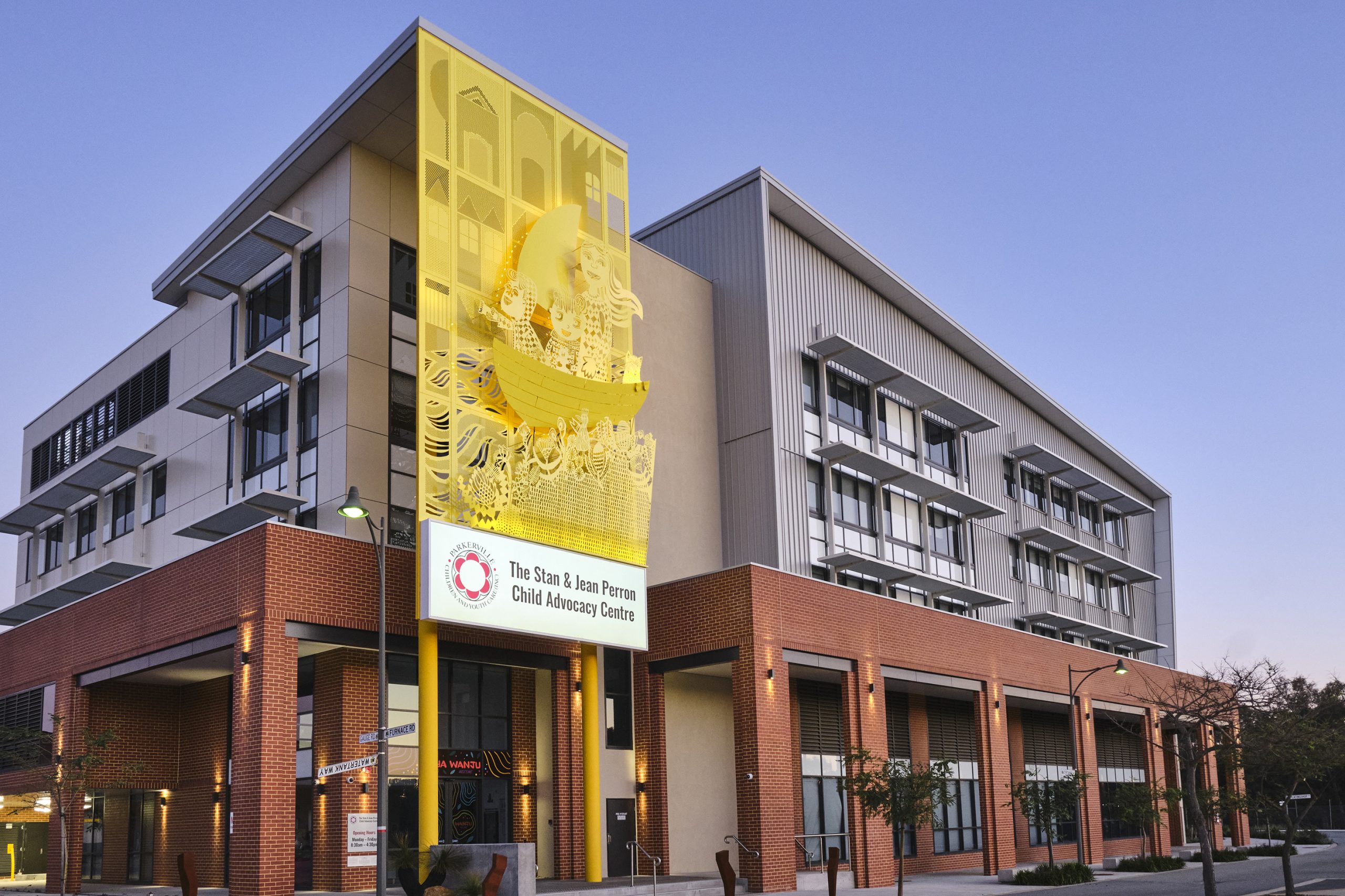
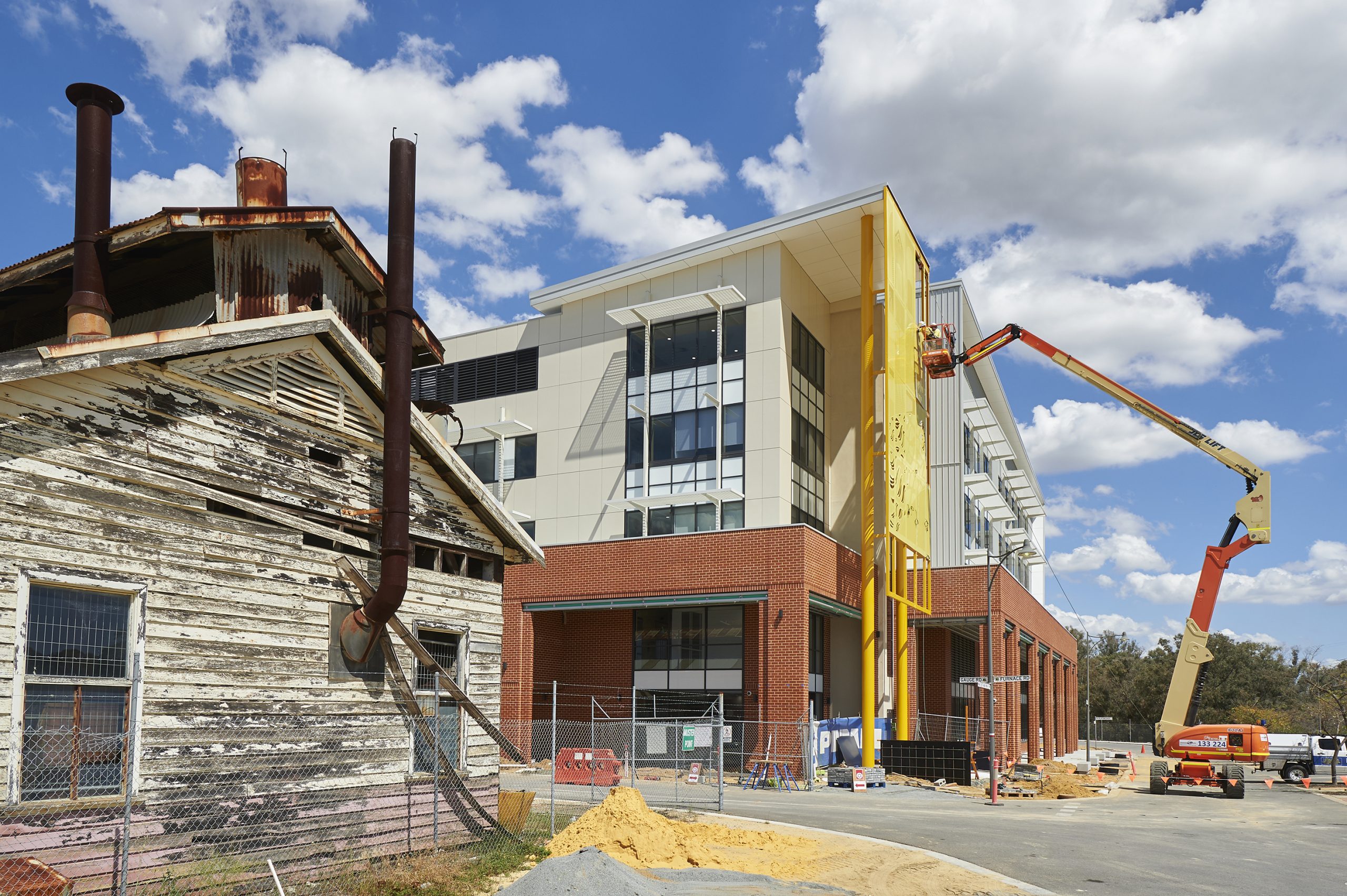
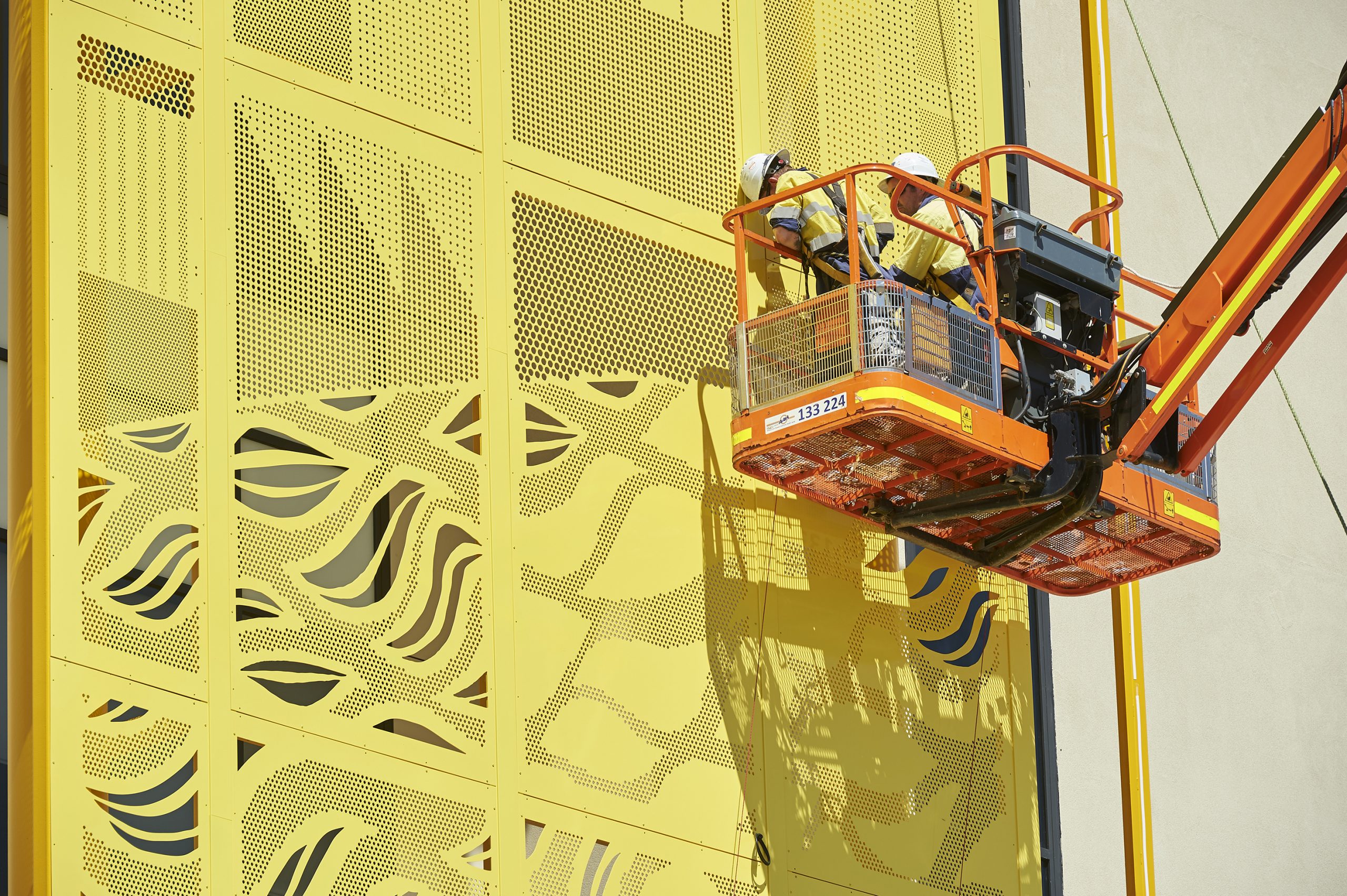
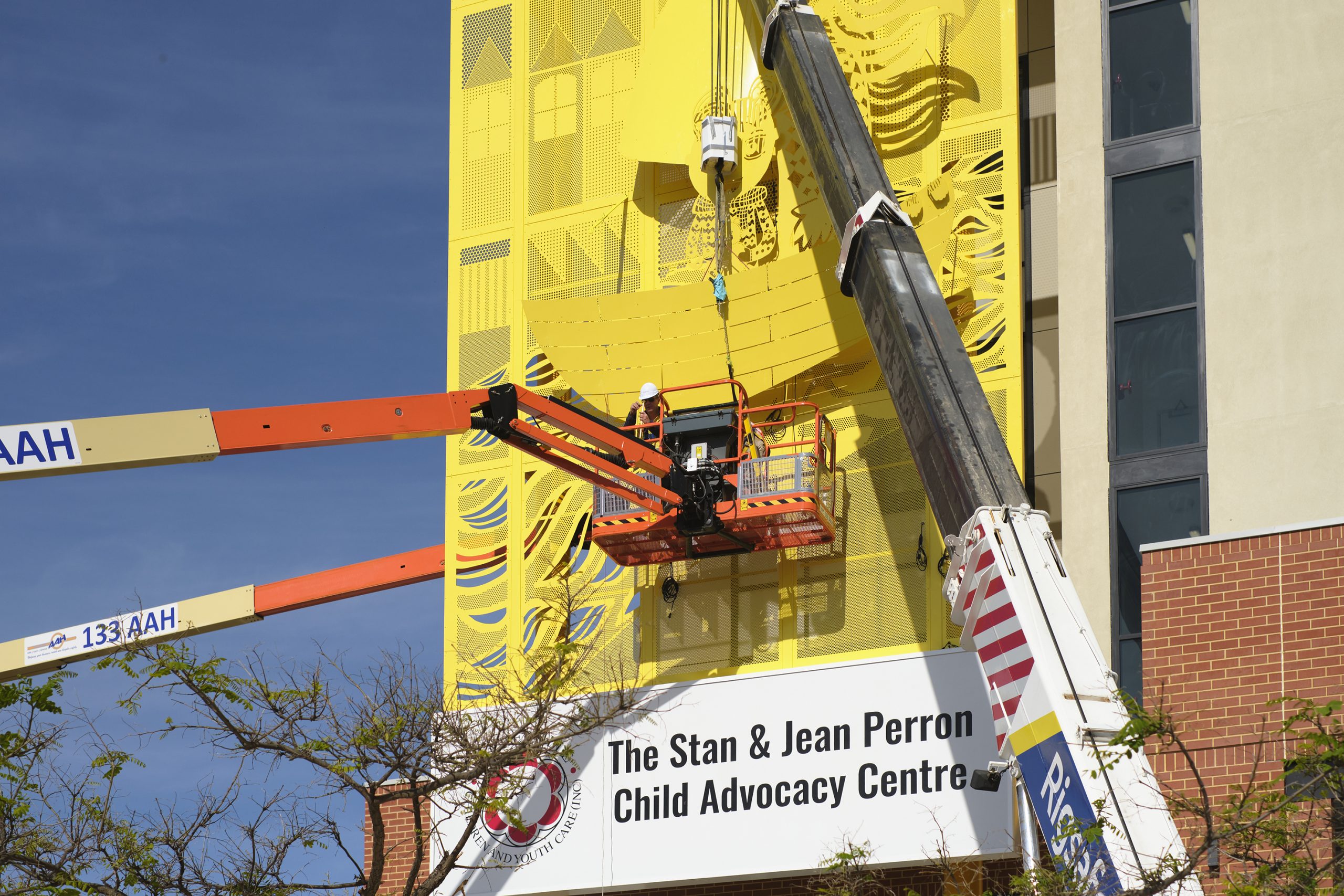
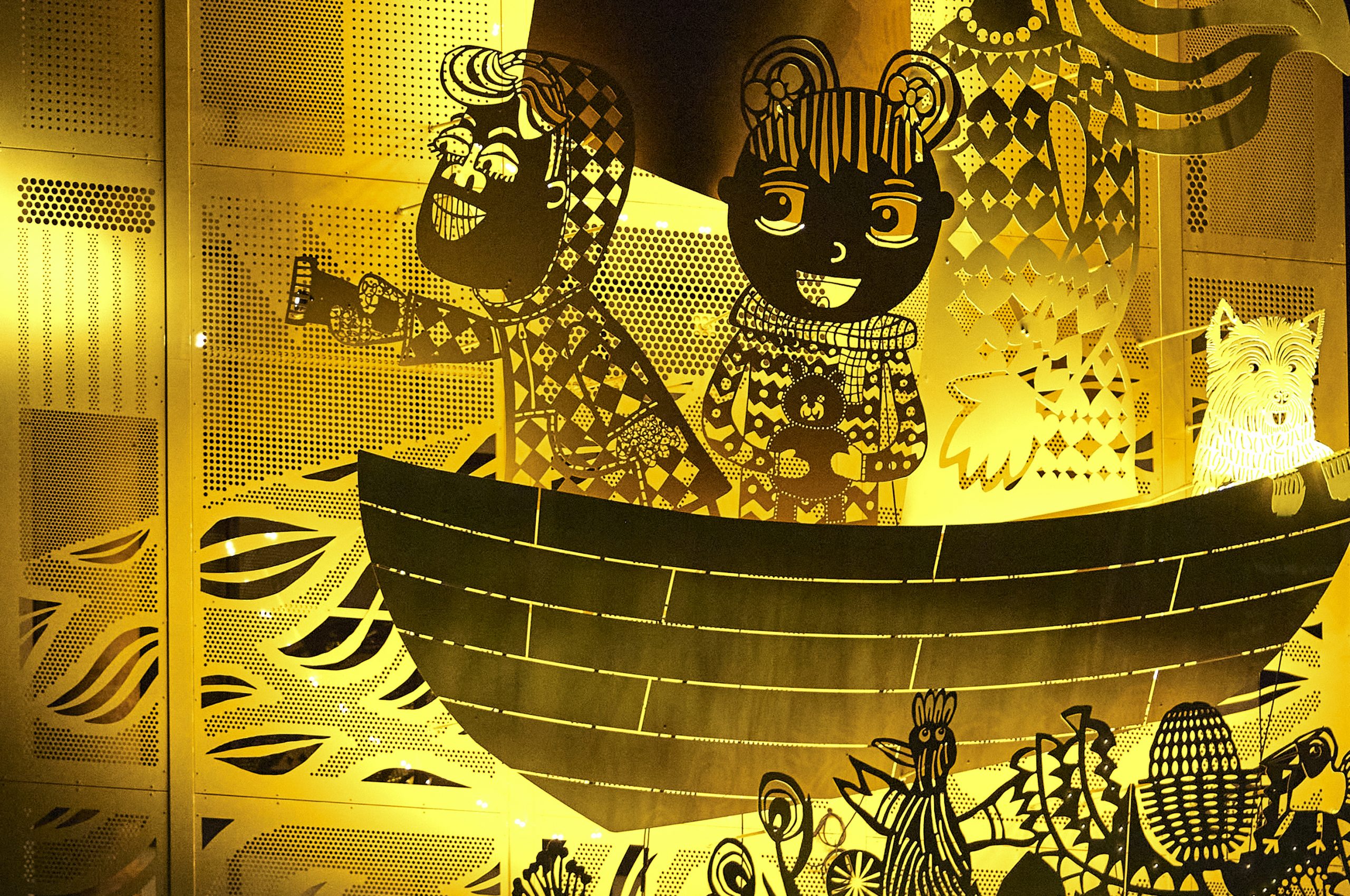
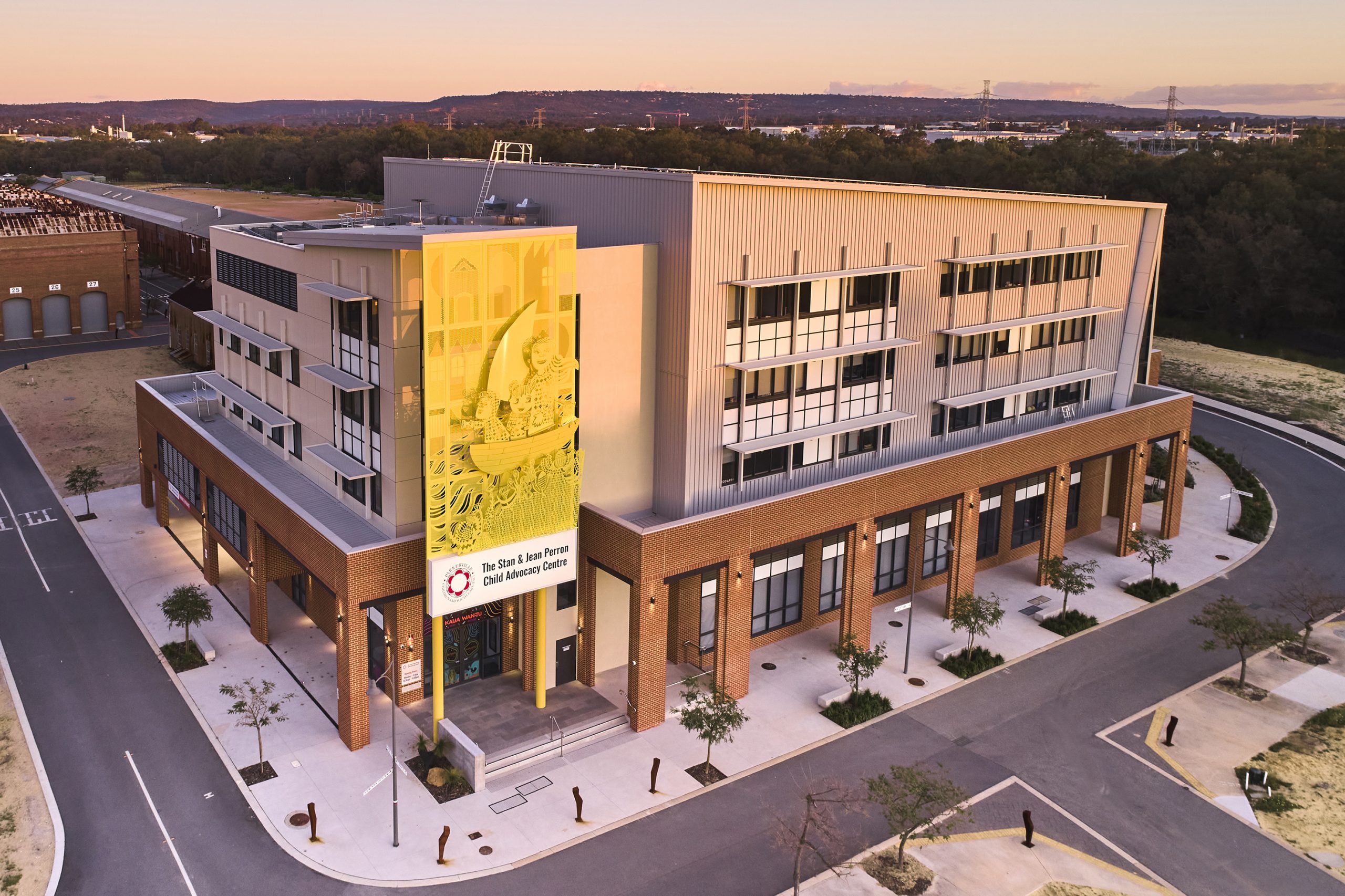
Client: Parkerville Organisation for Stan & Jean Perron Child Advocacy Centre.
Location: Perth, Australia
Completion date: 2019
Artwork budget: $130,000
Project Team
Independent Visual Artist
Paula Hart
Independent Visual Artist
Public Arts Consultant
Helen Curtis
APPARATUS Public Art + Cultural Services
Client
Stan & Jean Perron Child Advocacy Centre
Parkerville: Children & Youth Care
Architect
Peter Hunt Architects
Builder
Pindan
Lighting
Light Application Pty Ltd.
Overview
The Journey is a six storey metal artwork at the entrance of the Stan & Jean Perron Child Advocacy Centre, which houses multiple children’s services for young people at risk in Perth, Western Australia. The message of art in the Child Advocacy Centre context must be “Enter.” Within the patterns and imagery of the artwork it says, “Enter a Place Where You Are Welcome”.
Paula Hart created two artworks for the building. The Six Seasons carpark screens and this welcoming entry statement. Paula created the artwork in a participatory process with young people in a focus group to discover a suitably symbolic image, that conveys this message of a welcoming entry and safe place. The intention is for the decoratively cut metal paneling to be reminiscent of many elements of childhood – paper lanterns, shadow puppets and kirigami.
Goals
One of the strongest aspects of Paula Hart’s artwork is her ability to work together with communities, and particularly young people, to make artworks that represent them. Collection of stories, ideas, reflections etc from all involved was key to the integrity and success of the final created artwork. Together we examined their identity, their beliefs and the images / messages they wished to portray.
The large entry artwork needed to balance the scale and gravitas of the building with the delight and whimsy of the imagery created in the drawing workshops. The artist decided to work in layers. This manner of layering echoes many elements of childhood – paper lanterns, shadow puppets and kirigami. During the afternoon the artwork will shift and change with the sun and by night the artwork is illuminated.
Process
At our focus group discussions, the carers talked about Parkerville as a means of protection and moving forward. We spoke of journeys. Discussion about the importance of the river lead to this journey being represented by figures on a boat.
The children identified who and what should be in this boat – kids, a parent, their beloved pets. We talked about feeling secure, which is why the children are wearing warm clothes and holding a teddy. One child could hold a torch, showing the way forward.
The background urban landscape echoes the surrounding old Midland Railway Workshops. The buildings are based on shapes of buildings, sheds and roof lines in the precinct. The foreground uses the same flora & fauna depicted in the car park screens with all flowers having been identified as from the Midland area.
Additional Information
Decorative, cut panels are often abstract or geometric patterning that distract the eye from the support structure and grid of sheets. There seems to be few examples where artists attempt to create a “picture” because of this. A way to distract from the grid of support posts was to create layers. The background layer is quite simple perforated panels of 5mm Aluminum, while the feature pieces are separate, detailed laser cut cut-outs also cut from 5mm Aluminum. For further texture and playfulness, the boat is constructed in strips to look like a wooden boat, and the sail is gently rolled to create a billow. This also allows for interesting lighting. By lighting between the background and feature layers, there is a playful duality of front and back lighting that plays with shadows and positive / negative areas. The panels have been powder coated with Interpon D2525 Brilliant Yellow.